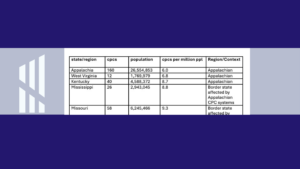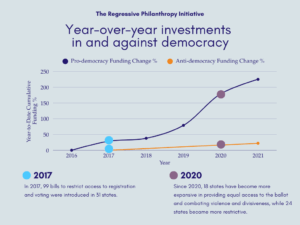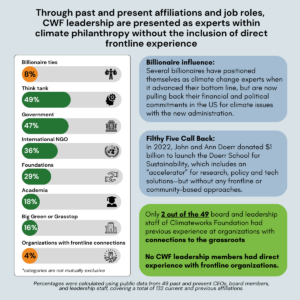If you follow NCRP’s work closely, you’ve probably interacted with two of our newest initiatives: Power Moves and As the South Grows.
What do these works have to do with each other? They are part of the same story – one that’s all about power.
In As the South Grows, a joint initiative with Grantmakers for Southern Progress (GSP), we explored the power of Southern communities and we outlined ways funders can begin questioning the ramifications of their own power and privilege in the process. Power and privilege are also central themes in NCRP’s new toolkit, Power Moves: Your essential philanthropy assessment guide for equity and justice.
Equity and justice have increasingly been at the center of discussions in the philanthropic sector, and this guide offers funders who care about equity and justice a detailed set of tools, plans and resources to address how power and privilege manifest within their institutions and in their grantmaking.
How Funders Can Build, Wield and Share Power with the South
As the South Grows and Power Moves are complementary resources.
Funders using Power Moves will find additional nuance about Southern grantmaking through firsthand testimony and shocking grantmaking disparities in the As the South Grows series. They can explore wielding power in the “organizing philanthropy” tip sheet in the capstone As the South Grows report, So Grows the Nation.
Likewise, a funder motivated by As the South Grows to fund equitably in the South will find a broad orientation to power, an internal planning guide and consultant offerings with Power Moves.
To highlight the connections, below is a sampling of As the South Grows recommendations that fit neatly within the Power Moves assessment’s three dimensions of power: building, wielding and sharing power.
Building Power
- Embrace the discomfort. Building power to advance equity requires striving to understand the complicated and, at times, painful history of the South by funding Southern-led power-building strategies like advocacy, organizing and civic engagement.
- Disaggregate your data. The data and research will show realities in Southern communities: Who is disproportionately affected by inequity and injustice, and who benefits from the status quo. Use the data to inform grantmaking strategies.
- Re-evaluate your institution’s processes and requirements to allow for different definitions of capacity, success and risk. Remember that privilege does not equal capacity. Grantmaking to advance greater equity and justice begins with understanding the different types of assets and measures of success.
Sharing Power
- Spend time and resources identifying existing infrastructure. Prioritizing building trust and relationships in Southern communities, will lead to the right people and information. Partner and engage the community; don’t just observe and extract information.
- Change expectations about what signs of nonprofit capacity look like. Signs of capacity may be hard to find by design because of the ways Southern state power has targeted dissent.
- Trust that the people closest to injustice, inequity and the work required to correct them are best at that work. Actively seek input from disenfranchised Southern communities in grantmaking decisions and hire Southern leaders. Building power begins with having a staff and board with lived experience in the communities they aim to serve.
Wielding Power
- Assess the stakes of inaction. Funders understandably want to do their research on how and where to invest their resources. But spending too much time prioritizing research over taking action is costly for communities that face far greater risks every day, particularly those on the front lines of power disparities in the South.
- Understand the privilege that comes with your position and your identity. Funders have an opportunity to leverage their personal and institutional privilege and power to enable higher quality Southern investment. Serve as conveners, advocates and collaborators with grant partners and other grantmakers.
- Organize philanthropic peers. Learn and co-strategize with peers who are moving their institution towards greater investment in Southern structural change grantmaking.
Steps to take now
Equitable grantmaking is not possible without shifting power back to communities, especially ones that experience inequities and injustice every day.
Whether you fund in the South or not, the region offers valuable lessons for doing this well in the face of deeply entrenched power imbalances.
Here are some steps you can take to start building, sharing and wielding power in your institutions and communities now:
- Read our latest As the South Grows report, including tips for organizing within philanthropy.
- Download the Power Moves toolkit.
- Catch up on the first Power Moves webinar on how power and equity are connected, and tune in to our next webinar, focusing on Building Power this month.
- Want to learn how to become involved with NCRP, GSP and As the South Grows? Contact Ben Barge at bbarge@ncrp.org.
- Interested in using Power Moves at your institution? Contact the Power Moves team at powermoves@ncrp.org.
Stephanie Peng is a research and policy associate at NCRP. Follow @NCRP on Twitter.






































































































































































































































































































































































































































